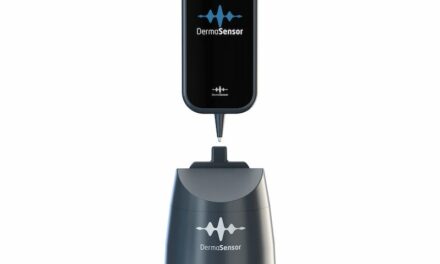Personalized medicine, one goal of molecular diagnostics that is already being clinically realized, offers the opportunity to treat individuals on a case-by-case basis with greater efficacy and efficiency than ever before.

Molecular diagnostics is heading the way of personalized medicine, aiming to help physicians devise particular treatment plans for individuals based on their genetic makeup.
“This is a very exciting time. We’re seeing this incredible focus on molecular diagnostics from the medical community and also from the investment community,” says Paul Beresford, vice president of Business Development and Strategic Marketing for Biodesix, Broomfield, Colo, a fully integrated molecular diagnostics company developing products that support excellence in clinical decision-making and improve patient care.
Much of the molecular diagnostics applications have found clinical relevance in a variety of cancers. Genetic tests can evaluate tumors to reveal individual biomarkers, which are becoming increasingly relevant in predicting prognosis and choosing treatment plans.
COLORECTAL CANCER
KRAS and BRAF mutations have been in the spotlight in cancer diagnostics and treatment, as mutations of these types may indicate a lower response likelihood for common cancer therapies.
“Should patients be subjected to difficult-to-tolerate therapy, as well as the economic burden of that therapy, when there’s a chance that it may be ineffective in treating the cancer?” asks Julian Walker, senior manager, Product Management, Genetic Systems Division of Life Technologies, a global biotechnology tools company based in Arcadia, Calif, that provides premier systems, consumables, and services for scientific researchers around the world. “The FDA has limited the recommended use of certain chemotherapy drugs for patients with KRAS mutations for this very reason.”
Anti-EGFR therapies are commonly used in a number of cancer types. The epidermal growth factor receptor (EGFR) pathway is associated with the development and progression of many cancer conditions. However, approximately 35% to 45% of metastatic colorectal cancer (mCRC) tumors may have a KRAS or BRAF mutation, which makes them less likely to respond to anti-EGFR therapies. Identifying these mutations is therefore of great importance in clinical and pharmaceutical research. Life Technologies currently has KRAS and BRAF Mutation Analysis Reagent sets under the Applied Biosystems brand available for research purposes only, and the companies are in the process of determining the regulatory path for these reagents.
“It is often cited that we have not seen the same stepwise advance in the treatment of cancer that we have seen in other major diseases. Genetic and genomic analysis promise to give us the insights to help make those potential advances. We have seen the number of molecular diagnostic tests grow from hundreds to thousands, and we should continue to see this trend with cancer being a primary driver—especially as research strives toward more sensitive, specific, and targeted therapeutics,” Walker says.
While most attention to date has been paid to KRAS and BRAF mutations in mCRC tumors, these mutations have also commonly been found in several other cancers, including pancreatic cancer, non-Hodgkin’s lymphoma, malignant melanoma, papillary thyroid carcinoma, non-small-cell lung carcinoma, and adenocarcinoma of the lung.
LUNG CANCER

According to the American Cancer Society, 222,000 Americans were newly diagnosed with lung cancer last year. Advanced non-small-cell lung cancer is the most common type of lung cancer.
Limited treatment options currently exist for second-line lung cancer, generally a choice between monotherapy, chemotherapy, or an EGFR-TKI. The decision is often based on prognostic factors—such as sex, race, and whether the patient smokes or not—that may not actually be indicative of treatment response.
Biodesix offers a serum-based proteomic test called VeriStrat, which is intended to help physicians make more informed treatment decisions for patients with advanced non-small-cell lung cancer based on their likelihood to respond to EGFR-TKI therapy. The test was released in May 2009 and is currently available as a CLIA-certified lab test.
The VeriStrat test provides a binary result, either VeriStrat Good or VeriStrat Poor, based on the protein patterns in a patient’s serum. A result of VeriStrat Poor indicates that the patient will receive little to no benefit from erlotinib (Tarceva) therapy, while VeriStrat Good indicates that the patient’s outcome compares favorably with other treatment options available.
One advantage of VeriStrat is that, as a serum test, it is not dependent on a biopsy, where the tumor may evolve in a patient’s body during the time of analysis. VeriStrat offers a 72-hour turnaround guarantee, and it has been turning around samples in about 24 hours, according to Beresford.
“Because we’re analyzing a patient’s serum, it allows our test to bridge across multiple tumor types. VeriStrat appears to work in colorectal, head, and neck cancer, based on clinical trials,” Beresford says.
Biodesix, founded in 2005, is devoted to advancing molecular diagnostics via its unique ProTS biomarker discovery and diagnostic platform. ProTS is a fast, nonhypothesis-based platform used for discovery, validation, and commercialization, and it is not dependent on the existence of immunoassays.
BREAST CANCER
According to the American Cancer Society, approximately 210,000 new cases of breast cancer were diagnosed in 2010. Breast cancer is the second most commonly diagnosed cancer and the second leading cause of cancer deaths among women in the United States.
Molecular diagnostics of breast cancer have focused largely on the expression of the HER2 gene in tumors, particularly with the success of the drug Herceptin in treating these tumors. Generally, about 25% of breast cancers consist of HER2 positive tumors, and these cases are likely to respond to Herceptin. Patients with more than two copies of the gene are considered “amplified” or “positive,” and are likely to respond to Herceptin treatment.
An emerging leader in molecular diagnostics and the analysis of DNA, RNA, and proteins at the molecular level, Abbott Molecular, Abbott Park, Ill, offers the PathVysion test, which is based on fluorescence in situ hybridization (FISH) technology and allows a physician to determine how many copies of the HER2 gene are present in a patient. FISH uses labeled single-stranded DNA probes to identify the location of genes on an individual’s chromosomes. The test can be performed in less than 24 to 36 hours and can be run manually, in a semiautomated or fully automated manner. PathVysion is also indicated as an aid in predicting survival and remission in patients with stage II, node-positive breast cancer treated with adjuvant cyclophosphamide, docorbuicin, and 5-fluorouracil (CAF) chemotherapy.
The PathVysion assay demonstrates a hybridization efficiency of 98% in formalin-fixed, paraffin-embedded biopsy specimens, and published studies using the PathVysion DNA Probe Kit have demonstrated a concordance of 97% to 99% with known HER2 positive specimens. The test’s use in gastric cancer is currently being developed, and its use may extend to other types of cancer in the future.
Ventana Medical Systems, Oro Valley, Ariz, offers a panel test for biomarkers of breast cancer, including HER2.
The panel employs a combination of antibodies (immunohistochemistry) and molecular probes (in situ hybridization) to reveal individual biomarkers of breast cancer tumors. HER2 IHC tests provide a protein-based diagnostic to identify overexpression of the HER2 protein as a result of too many copies of the HER2 gene. HER2 ISH tests provide a gene-based diagnostic to identify amplification of HER2 genes and the resulting production of too much HER2 protein. The Ventana IHC breast panel and ISH assay are available in a ready-to-use form and fully automated on the Ventana BenchMark series of instruments.
More specifically, the ant-HER-2/neu (4B5) Rabbit Monoclonal Primary Antibody is FDA-approved for the semiquantitative determination of HER2 protein expression status as an aid in the assessment of breast cancer patients for whom Herceptin therapy is being considered. Currently under review with the FDA is the INFORM HER2 Dual ISH DNA Probe Cocktail assay, which is presently CE Marked (Europe) for both breast and gastric samples and is available for commercial use outside the United States and Canada.
GASTRIC CANCERS
The American Cancer Society estimates that there were 37,000 new cases of stomach and esophageal cancer in 2010, and that they caused more than 25,000 deaths last year.
The HER2 gene also shows significant relevance in gastric cancers, although a different evaluation lens may be required in the determination of HER2 positivity in gastric tumors compared to breast tumors. In gastric cancer, staining of a HER2 positive tumor results in a U-shaped stain, which may be considered HER2 negative in the lens of breast cancer. Because HER2 clusters differently in the cells of the stomach or esophagus compared to breast cancers, it is becoming clear that different modes of evaluation are necessary. For example, more tumor tissue samples are generally required for determining HER2 status in gastric cancers, the staining pattern of the cell membrane is different, and the scoring and interpretation of the test results are different.
Krysta Pellegrino, a company spokesperson for Genentech, headquartered in San Francisco, sees that as another step in the direction toward personalized medicine.
“This is what companies like Roche and Ventana are trying to do, is develop treatment plans that work for individuals,” she says.
MACHINERY
Life Technologies offers a new series of genetic analyzer, the 3500 Series Genetic Analyzer, which includes 8- and 24-capillary Genetic Analyzers and are designed for research use only. Compared to the 3130 Series, the new series offers higher throughput, advanced software allowing real-time data quality assessment, multiplexing capabilities for DNA fragment analysis with up to six different dyes, a standard power supply, and less bench space required.

To keep up with developments in Molecular Diagnostics, visit this site often.
The 3500 Dx Series Systems are Life Technologies’ first CE-IVD marked capillary electrophoresis instruments, designed to comply with the Directive 98/79/EC on In Vitro Diagnostic Medical Devices, currently registered in most European countries and intending to file the application for 510(k) registration with the FDA before the end of the calendar year 2011.
With rapid improvements in equipment, assays, and the elucidation of relevant biomarkers, the field of molecular diagnostics is burgeoning. Personalized medicine, one goal of molecular diagnostics that is already being clinically realized, offers the opportunity to treat individuals on a case-by-case basis with greater efficacy and efficiency than ever before.
“The future of personalized health care may include the pathologist delivering a comprehensive molecular ‘profile’ that identifies initial targets of therapy as well as molecular pathways or specific mutations that the cancer may use to circumvent first-line therapy,” says Eric Walk, Ventana’s chief medical officer.
Sara Ball is a contributing writer for CLP.





